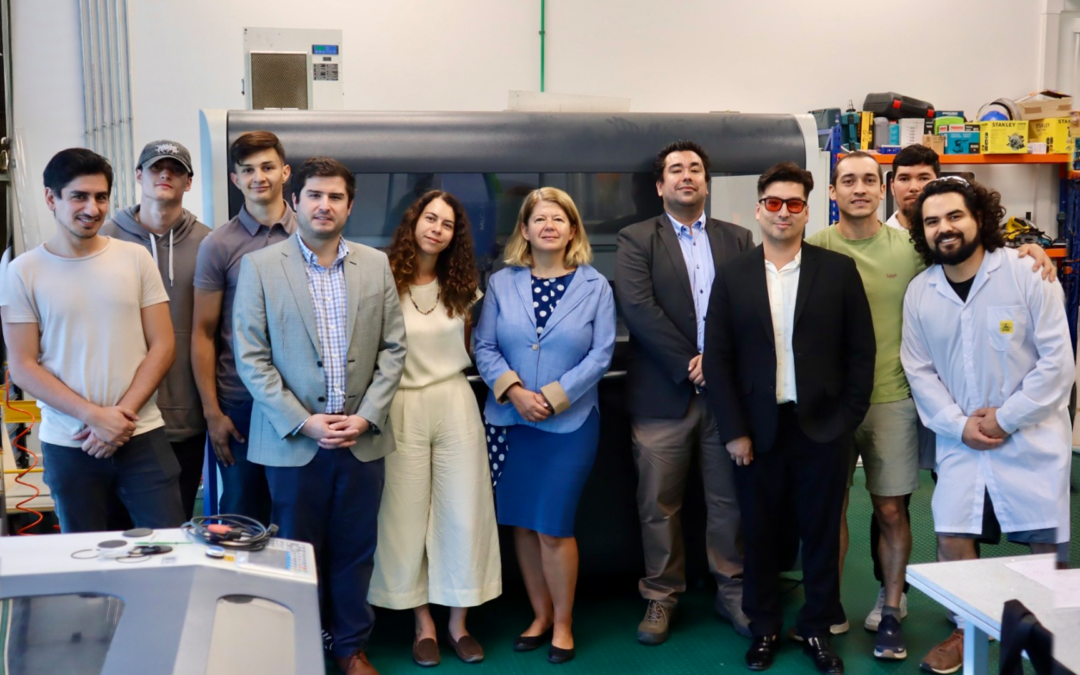On Friday, January 3, the Ambassador of Italy in Chile, Valeria Biagiotti, together with the Commercial Secretary, Althea Cenciarelli, made an official visit to part of our laboratories located in the Campus Casona de Las Condes, Universidad Andrés Bello. During her visit, the ambassador was received by Saphir authorities, together with scientists and scientists, who showed her the most recent advances and projects in the field of particle physics. The visit offered a unique opportunity to strengthen ties of international cooperation, promoting the exchange of knowledge and encouraging the development of new collaborations between Italy and our institution.
The ambassador expressed her interest in the pioneering research being carried out at the institute, especially in areas such as experimental physics and particle theory. During the tour, the joint efforts that the university maintains with various international institutions were highlighted, as well as the commitment to the training of new talents in the scientific field. This meeting reflects Italy's growing interest in supporting research in particle physics and strengthening its participation in global scientific projects.
"The visit of the Italian Ambassador to Chile reflects the interest that our institute generates in the international community. SAPHIR is recognized for its high scientific quality, and the appreciation that various authorities and representatives from different countries give to our work is extremely significant for us. This meeting left us very satisfied," says Felipe Olivares León, executive director of SAPHIR.
Scientific cooperation among countries is essential to advance knowledge and address the global challenges we face. The exchange of ideas, resources and technologies allows researchers to access new perspectives and approaches, promoting innovation and the development of more effective solutions. In addition, international collaboration in areas such as physics, biotechnology or climate change fosters global teamwork, which facilitates large-scale projects and enriches the scientific process. This cooperation not only strengthens research, but also contributes to peace and diplomacy, creating collaborative networks that transcend borders and benefit humanity as a whole.

